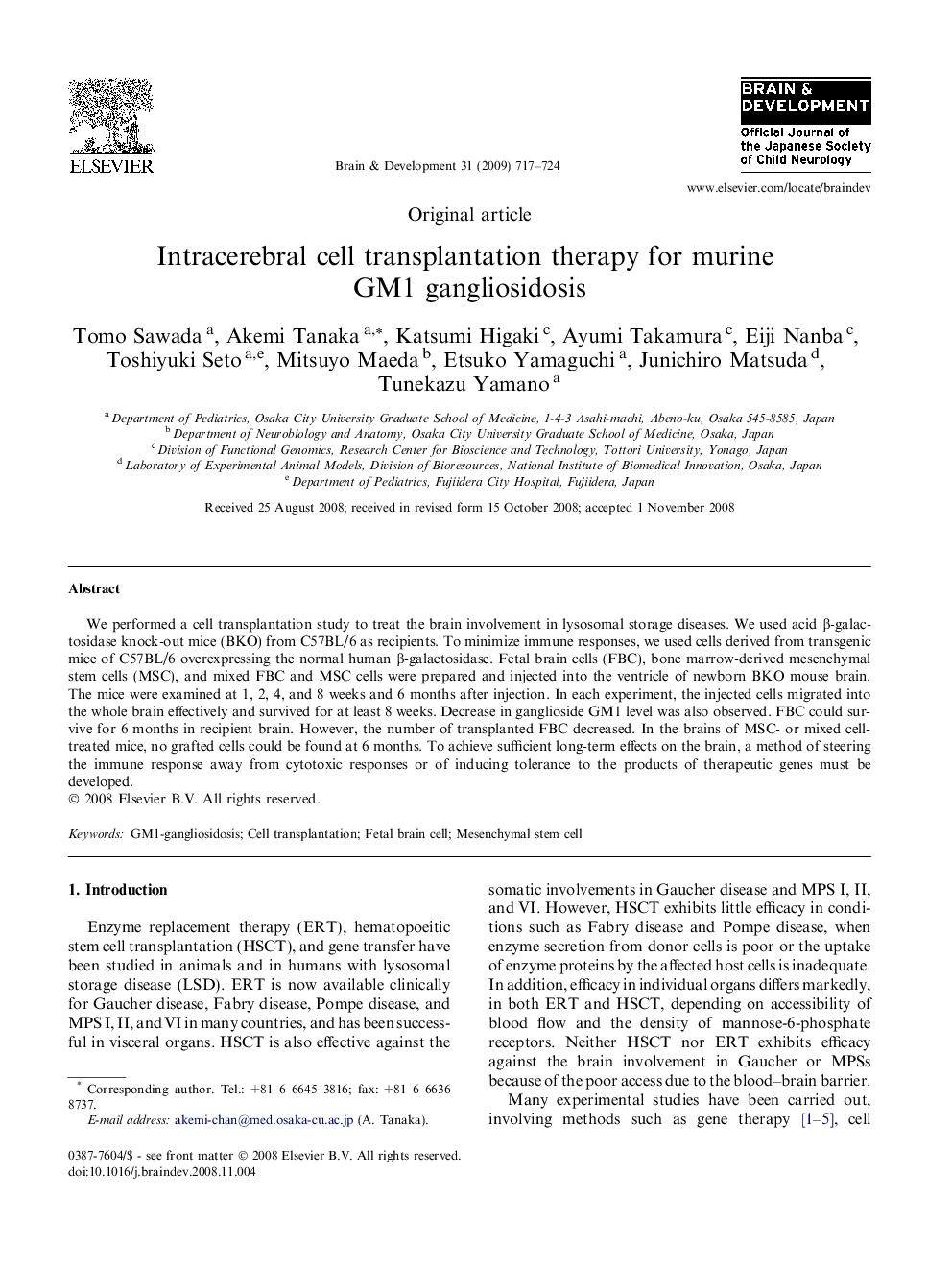| Article ID | Journal | Published Year | Pages | File Type |
|---|---|---|---|---|
| 3038046 | Brain and Development | 2009 | 8 Pages |
We performed a cell transplantation study to treat the brain involvement in lysosomal storage diseases. We used acid β-galactosidase knock-out mice (BKO) from C57BL/6 as recipients. To minimize immune responses, we used cells derived from transgenic mice of C57BL/6 overexpressing the normal human β-galactosidase. Fetal brain cells (FBC), bone marrow-derived mesenchymal stem cells (MSC), and mixed FBC and MSC cells were prepared and injected into the ventricle of newborn BKO mouse brain. The mice were examined at 1, 2, 4, and 8 weeks and 6 months after injection. In each experiment, the injected cells migrated into the whole brain effectively and survived for at least 8 weeks. Decrease in ganglioside GM1 level was also observed. FBC could survive for 6 months in recipient brain. However, the number of transplanted FBC decreased. In the brains of MSC- or mixed cell-treated mice, no grafted cells could be found at 6 months. To achieve sufficient long-term effects on the brain, a method of steering the immune response away from cytotoxic responses or of inducing tolerance to the products of therapeutic genes must be developed.
